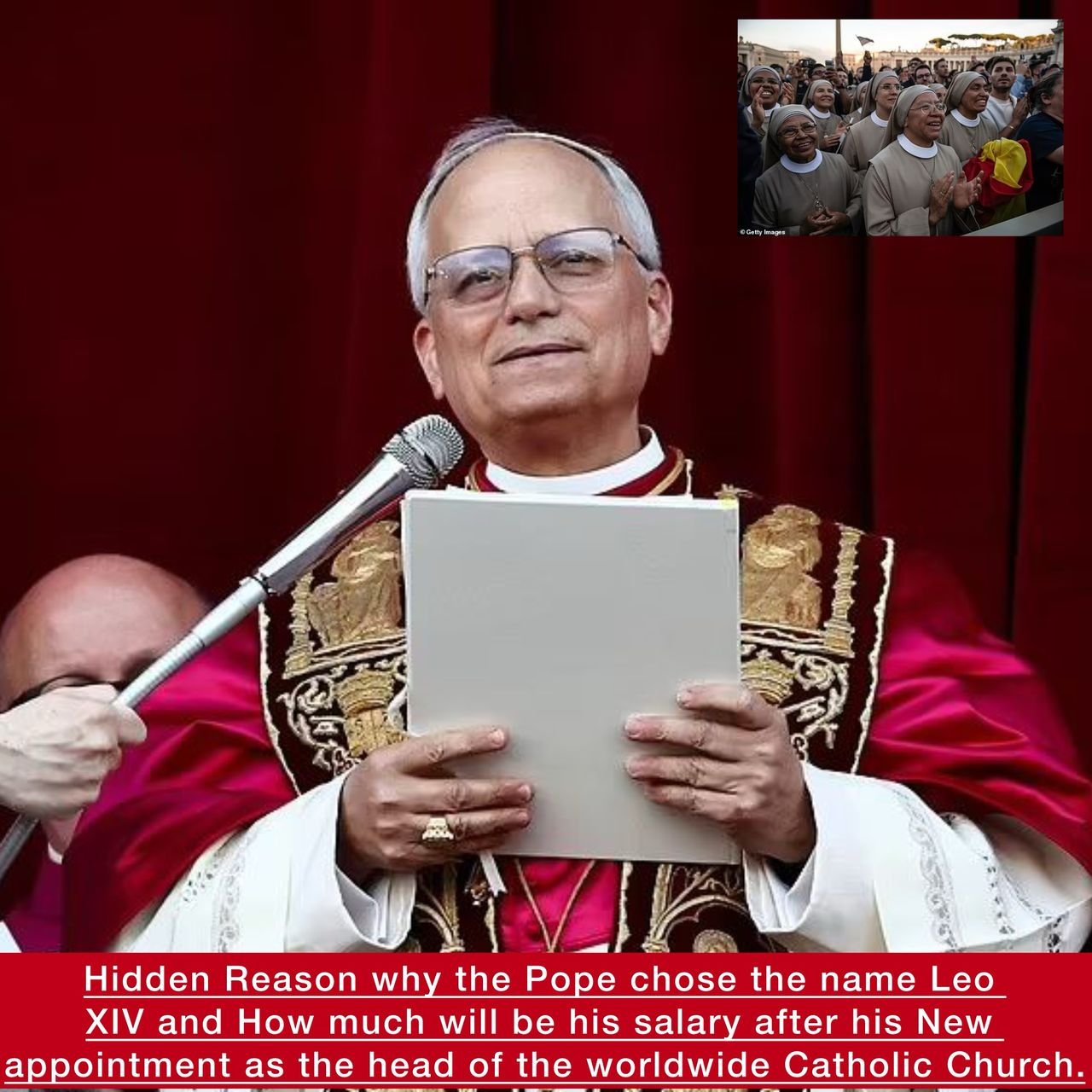According to specialists, Pope Leo XIV’s selection of a new name indicates that he intends to continue the work of his predecessor.
Robert Prevost, the former Cardinal, was elected as the new head of the Catholic Church yesterday after the second day of the conclave.
The first American pontiff, born in Chicago, emerged from St. Peter’s Basilica in front of the faithful congregated at St. Peter’s Square after white smoke billowed from the chimney of the Sistine Chapel.
A Vatican spokesman verified that the selection was a nod to Leo XIII, the Church’s leader from 1878 to 1903.
Leo XIII’s 1891 encyclical Rerum Novarum, which addressed workers’ rights and capitalism at the onset of the industrial age, is the most renowned work that established the groundwork for modern Catholic social thought.

Brother Leo, the 13th-century Franciscan who was a distinguished companion of St. Francis of Assisi, could also be referred to as Leo.
Dr. Gonzalo Velasco Berenguer, a lecturer in global medieval and early modern history at the University of Bristol, suggested that the new Pope may be demonstrating a continuation of the work of his predecessor Francis by selecting such a name.
“I believe that the selection of the Pope’s name is one of the most intriguing aspects of the election,” he stated.
“At first glance, it may not appear to be the most innovative option; however, it could serve as a symbol of the new Pope’s commitment to continuing the work of Francis.”
According to Professor Brandon Gallaher of the University of Exeter, Leo XIV is expected to be a pontiff in the manner of Francis.
‘The new Pope Leo XIV is a continuity candidate to institutionalize Francis’s legacy by connecting it to the tradition of Catholic social doctrine,’ he continued.
Leo XIV and Francis are both motivated by the desire to prioritize the marginalized and care for migrants.
He will be a pontiff similar to Francis, but without the intense charisma of the late pope. He will have a better ability to unite the Catholic factions, pay more attention to the canonical intricacies of his decisions, and likely show greater discipline in terms of public statements.
The selection of Pope Leo XIV demonstrates that Pope Francis’s changes to church life will now be institutionalized.
The former Cardinal was critical of the Trump administration, as evidenced by social media postings. In February, he shared an opinion piece in which he criticized US vice president JD Vance for being incorrect about certain aspects of Christian teaching.
The new leader was selected in approximately 24 hours during the covert conclave meeting.
The new pontiff addressed the adoring audience with the words, “Peace be with you,” during his inaugural address.
US President Donald Trump promptly praised the election of the new Pope as a moment of excitement and honor.
The election was characterized by Prime Minister Sir Keir Starmer as a “deeply profound moment of joy for Catholics in the United Kingdom and globally.”
Charity that promotes international development Cafod stated that Pope Leo “will be a voice of wisdom in a fractured and divided world” and that his years as a missionary in Peru will enable him to introduce “the vital perspective of the global south, elevating voices from the margins to centre stage” into his papacy.
Cardinal Vincent Nichols, Cardinal Timothy Radcliffe, and Cardinal Arthur Roche, who is domiciled in Rome, were among the three cardinals from the United Kingdom who participated in the conclave. Additionally, Cardinal Kevin Farrell, who was born in Ireland and has primarily served in the United States, was present.
The conclave was considered to be one of the most diverse ever, with approximately 70 countries represented, and only cardinals under the age of 80 were eligible to cast a ballot.
Pope Francis had appointed approximately 108 of the 133 cardinals who participated in the conclave to select his successor.
He commands the spiritual devotion of over a billion Catholics across the globe, occupies one of the most recognisable roles in the world, and leads a sovereign state.
Yet the Pope – the supreme head of the Roman Catholic Church – does not earn a traditional salary.
In contrast, the Vatican, the world’s smallest independent country, ensures that the pontiff’s every requirement is met, including sustenance, travel, healthcare, and security.
Pope Francis, who is renowned for his modest and parsimonious lifestyle, actively refrained from accepting any form of personal income during his tenure as the Head of the Church from 2013 to 2025.
Although the Pope is technically entitled to a modest salary, which is estimated to be around €2,500 per month (approximately £2,150), his decision is consistent with that of his namesake, St. Francis of Assisi, and it is indicative of his dedication to the impoverished and simplicity.
Previous popes have also never been known to receive lavish salaries. Rather, the Vatican provides an existence that is essentially free of expenses.
Francis, however, opted to reside in the more modest Domus Sanctae Marthae guesthouse on Vatican grounds, despite the fact that housing is typically provided in the opulent Apostolic Palace.
The Pope is not impoverished, despite the fact that he does not receive a salary. Pope Francis’s total worth, which encompasses Vatican-funded services and papal assets, has been estimated to be approximately £12 million.
Leave a Reply